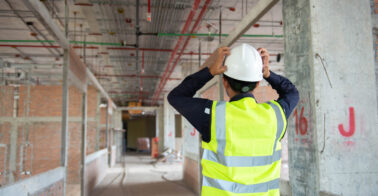Progress: Green Building and Technology


The construction industry is changing and there are many tangible signs of progress to be celebrated. Experts share highlights, and remind us of the helpful role data and technology play in achieving positive—and profitable—outcomes.
Miles To Go
Having estimated that in 2021,“construction accounted for almost 40% of global emissions, 28% of which came from raw-material manufacturing“ consultants at McKinsey remind us of the long journey ahead: “Left unchecked, carbon output from construction could grow over the next 30 years because of the demands made by an expanding population.” With so much still to figure out and do, it’s inspiring to note some examples of progress:
In the US, the number of LEED-certified projects surpassed 100,000 in 2019, up from just 296 certifications in 2006 to more than 67,000 certifications in 2018, according to the U .S. Green Building Council.
At the state level, the California Energy Commission has adopted a mandate that requires new residential homes to be built with solar panel technology. Since 2007, the state of Colorado has required third-party green building certification for state construction projects. The state of Virginia, meanwhile, has passed legislation that establishes environmental goals, including decreasing carbon emissions as well as constructing new renewable energy facilities.
Increased awareness of evironmental damage as well as labor shortages and disruptions with material procurement are driving some of the changes increasingly felt throughout the building sector. For example, recycled construction and demolition waste is being used to make engineered wood or aggregate, and harvesting bamboo is turning out to be much faster and more sustainable then timber. Waste and transportation related emissions are being reduced as modular and prefabricated building gains ground. Recognition that there is no one magic way to reach the goal of a “net-zero emissions status” by 2050, builders are increasingly experimenting with the use of solar panels, recycling and more: “Some options are unconventional but exciting. For example, research is underway to use the mycelium fungus to make natural bricks. It will take time for such possibilities to become mainstream. However, they give hope for the future.” As building pros sum up, “The industry is evolving.” Along the way, the increased availability and use of data and technology is having an impact, as Construction Pros report:
Smart construction platforms purpose-built for the industry can improve decisions, provide predictive insights through the use of AI, and help mitigate risks and assist in lowering carbon emissions. For example, digital documents, drawings, and 3D models help reduce paper. Even more helpfully, though, smart construction platforms can also help reduce waste and costly rework by visualizing the end result before starting to build….Data analytics can change how everything is constructed, from individual buildings to major public infrastructure projects and even entire cities. Data can help teams measure the sustainability of current construction methods and leverage those insights to show sustainability throughout the entire construction lifecycle’s plan, build, and operate phases. When employed correctly, data can help propel the built-asset industries toward long-term sustainable development methods.
Like the green wave, the technology wave in construction has only just begun: Construction Dive reports that investments in contech tripled from 2020-2021, with start-ups aimed at enhancing productivity reaping the biggest infusion of cash—a whopping $4.5 billion. Green construction, supply chain and “tools reshaping the traditional construction process” also experienced strong support from investors. Indeed, the scale, scope and complexity of infrastructure challenges in need of attention across the country has upped the imperative for advancing the use of technology. Industry experts continue to point out that the effective integration of technology and building is essential for the completion of faster, more sustainable and more cost-efficient construction.
These days, every financial insight gleaned can contribute to smart decisions—and wins—for builders too. That’s why Colonial Surety offers The Partnership Account for Contractors®. With this free service, you can plot the growth of your business, strategically, one step at a time. The Partnership Account® arms you with a private digital dashboard, providing a day to day snapshot of single and aggregate limits, as well as current and available bond capacity. As work in progress decreases, you can even update your work on hand—increasing your aggregate, so you can go ahead and move that next bid ahead. Take control of your finances—and get an edge too as you issue your own bid bonds, instantly, using our powers of attorney.
Get started today: Pre-Qualify and Get Free Scores Here.
Founded in 1930, Colonial Surety Company is a leading direct seller and writer of surety bonds and insurance products across the USA. Colonial is rated “A Excellent” by A.M. Best Company and U.S. Treasury listed.

